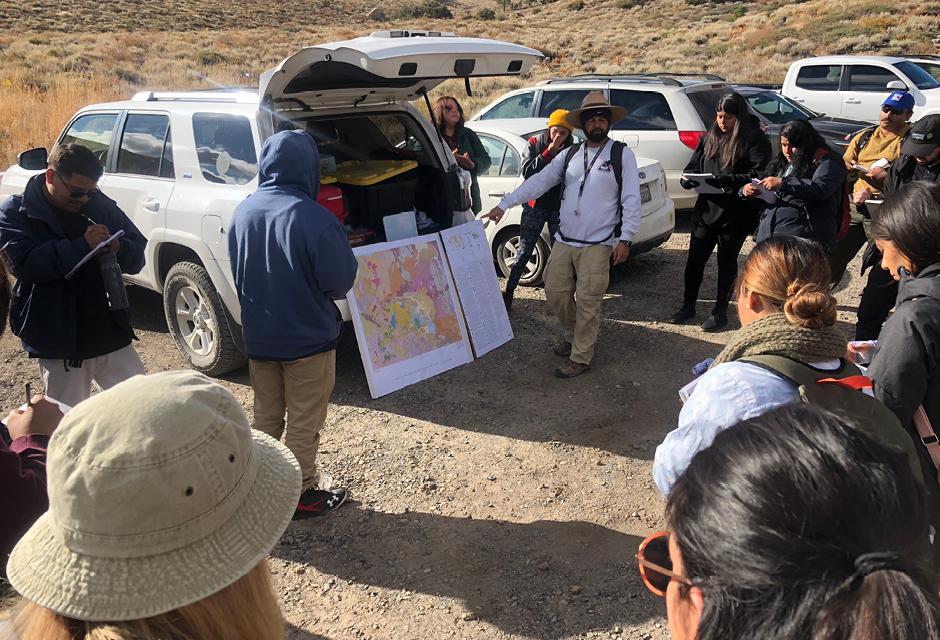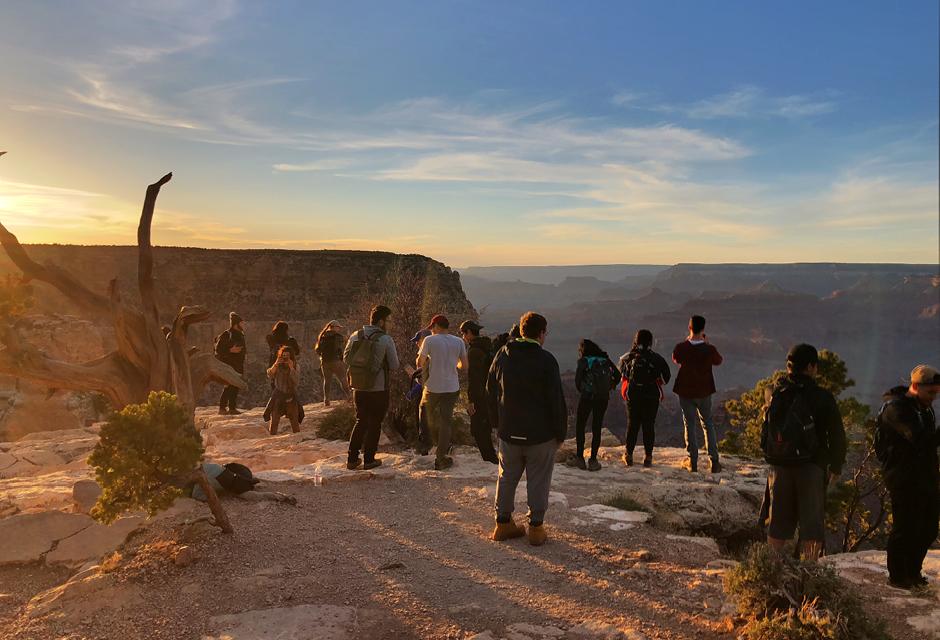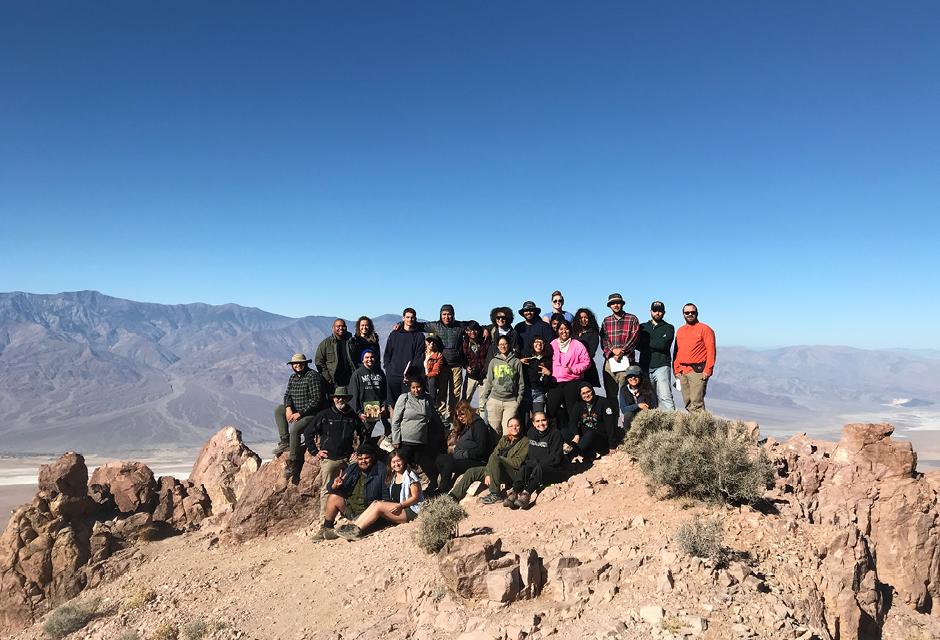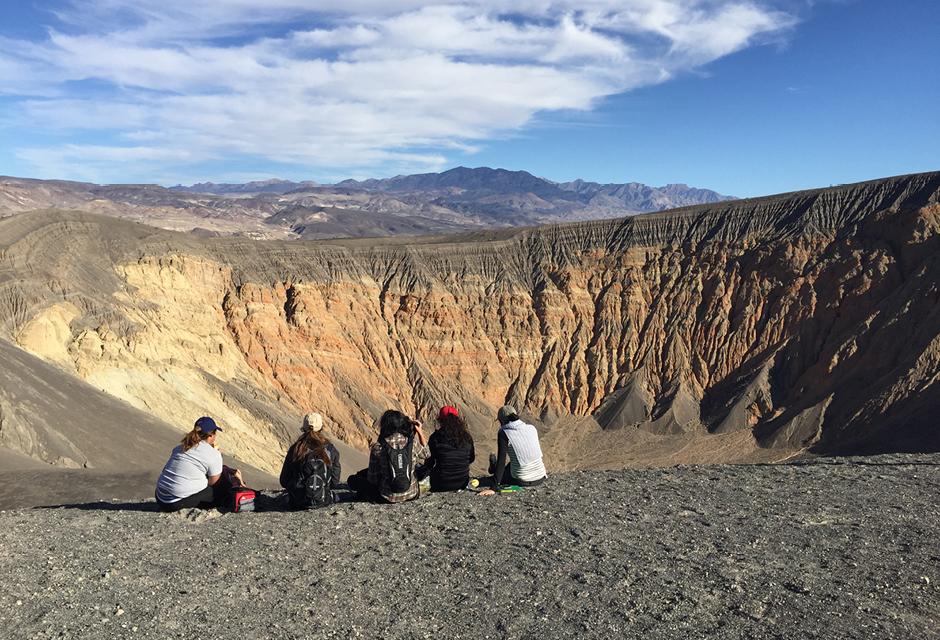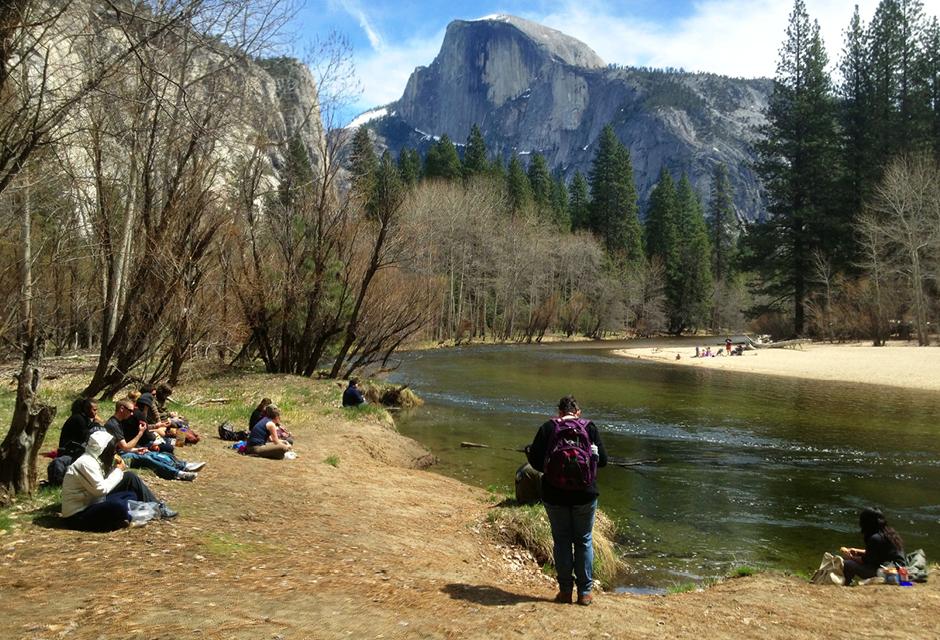Geology
The Department of Physical Science offers an Associate of Science in Geology for Transfer Degree. The Transfer degree assures enrollment and transfer opportunities at California State Universities. The geology major at LBCC provides students with authentic laboratory and field experiences that serve as the foundation for geologic understanding and reasoning. The Geology program offers several courses that prepare geology students for upper-division geology courses offered at 4-year institutions.
DEGREES & CERTIFICATES
Geology, Associate in Science for Transfer (AS-T)
View all LBCC’s Programs of Study and Curriculum Guides
(New students need to refer to the current academic year for the most up-to-date info)
| Receiving a Degree/Certificate | Class Schedule | Make an Appointment |
CAREER INFO
Start your career as a professional and/or specialist in the areas below!
Environmental Geology
Environmental geologists work with clients and government regulatory agencies to clean up toxic substances from soil, surface water, groundwater, and soil vapor. Environmental geologists assess the extent of contamination by conducting searches of historical documents, aerial and satellite imagery, and by collecting soil, water or vapor samples. Environmental geology is one of the two largest employers of geologists in California.
- Environmental Analyst
- Environmental Engineer
- Environmental Geologist
- Geochemist
Geotechnical Geology
Geotechnical geologists, also referred to as engineering geologists, typically work with civil and structural engineers in preparation for construction projects. Engineering geologists will begin a project by conducting research on available aerial and satellite imagery to identify geologic structures, such as landslides and earthquake faults, which could potentially cause significant impairments to development. Geotechnical geology is one of the two largest employers of geologists in California.
- Engineering Geologist
- Geological Technician
- Geophysicist
Hydrogeology
Hydrogeology is the study of subsurface water and its interaction with the surface. Hydrogeologists are usually employed by water agencies, regulatory agencies, and environmental consulting firms. No matter where you are in the United States, communities will require the help of hydrogeologists to find and maintain fresh groundwater sources for their water supply.
- Hydrogeologist
- Hydrologist
- Geochemist
- Groundwater Modeler
Economic Geology
Geologists in this field are typically employed by mining companies or state and federal regulatory agencies. Economic geologists are tasked with finding the resources that society requires to continue to function. These resources include, but are not limited to; metals, precious minerals, rare-earth elements required for all technology, lithium for all rechargeable batteries, petroleum, natural gas, and coal.
- Paleontologist
- Petroleum Engineer
- Petroleum Exploration Geologist
- Prospector Geochemist
- Sedimentologist
Seismology
Seismologists come in two varieties, the paleoseismologist and the geophysicist. Paleoseismologists study past earthquakes by looking at the offset of faults in the near-surface to try to determine the size and age of these earthquakes.
Geophysicists that study earthquakes analyze the seismic waves produced by earthquakes taking place in real-time to develop models about future earthquake shaking in an area.
- Paleoseismologist
- Seismic Engineer
- Seismologists
To explore potential jobs in this field of study, we strongly urge you to visit LBCC Career Center. Working with a career counselor, we will assess your strengths, skills, interests, and accomplishments to help you identify internship opportunities and career goals that match your educational and professional needs.
FAQ
What can you do with Geology degrees?
You can work for different States and/or the Federal Government.
- The National Park Service and many State parks employ geologists as park rangers and museum curators.
- The US Geological Survey employs geologists for mineral, petroleum, and groundwater resource management, as well as volcano and earthquake monitoring.
- In addition, the construction of buildings, dams, and roads involves geologists for soil investigations and surveys.
You can work in the industry.
- Petroleum and mining companies employ geologists for the exploration of resources and management.
What are the Geology courses I can take at LBCC?
Please visit the College Catalog to find Geology courses.

